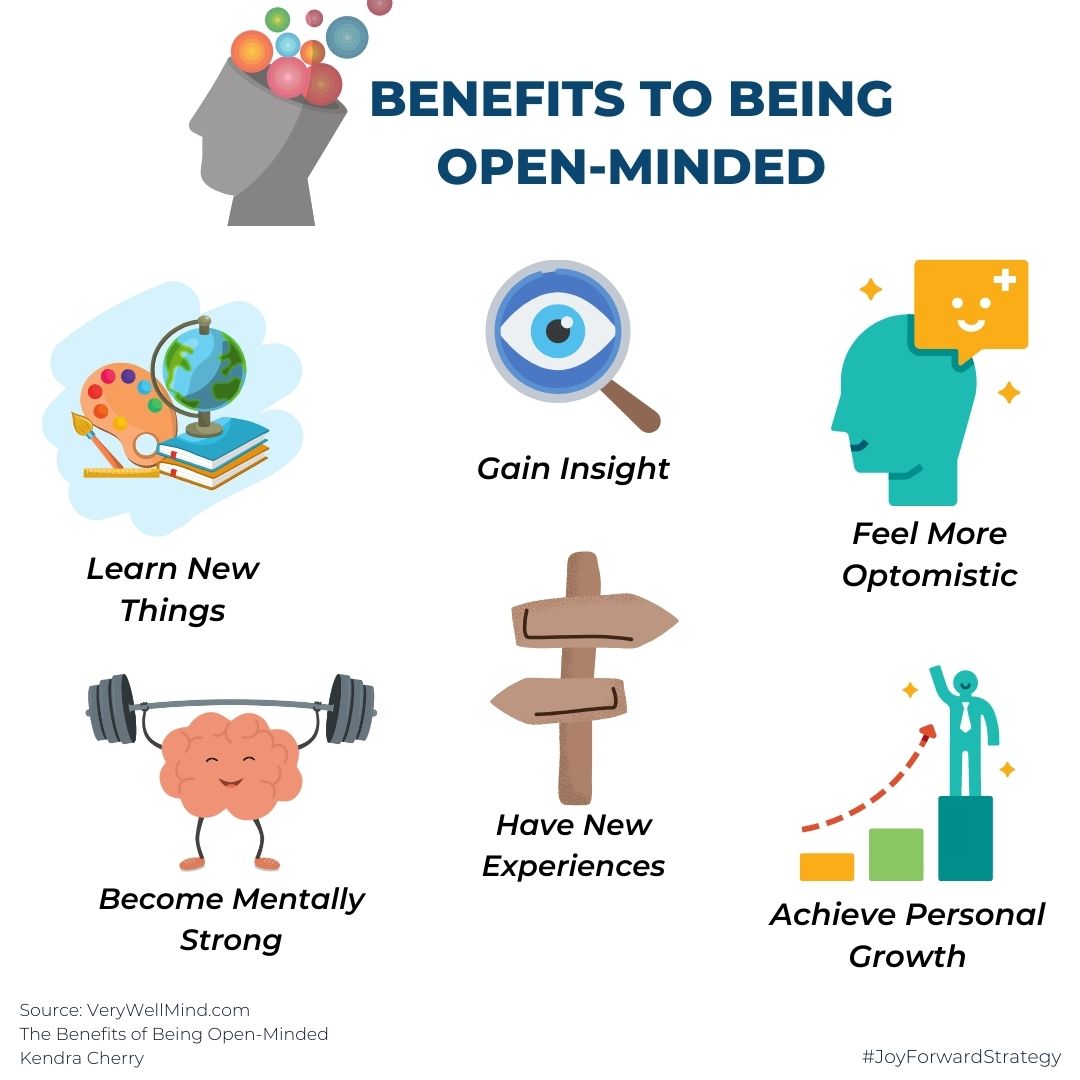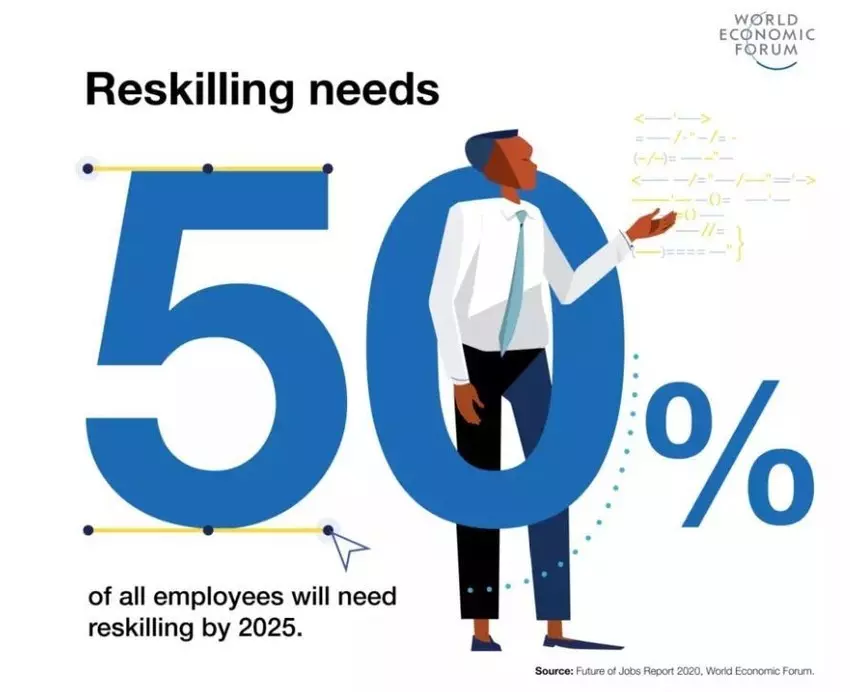Learn, Unlearn, Relearn: Critical Skills for the Future
Jun 22, 2021“The illiterate of the 21st century will not be those who cannot read and write, but those who cannot learn, unlearn, and relearn.” – Alvin Toffler
Being illiterate simply means not being capable or lacking fundamental knowledge. Just as those of the 20th century who could not read or write had difficulty navigating society and holding down jobs, those who lack the ability to learn, unlearn, and relearn in the 21st century will have similar difficulties. This will become especially true as technological advancements and artificial intelligence continue to garner larger percentages of current jobs. New jobs will be created, requiring greater numbers in the workforce to learn, unlearn, and relearn.
Learn
To learn is to acquire knowledge or skills through study or experience. [1] Most people are capable of and adept at learning at least through their years of formal education. How many people actually consider themselves lifelong learners? It is continuous learning throughout life and career that is in need. The world is changing fast, and technology is adapting with increasing complexity. It is naïve to think anyone in the 21st century can start a career that won’t require learning new skills. Even outside of the workforce, new skills are necessary for new forms of social connection and functioning with technology required for daily living.
The workforce skills needed are changing. “Skills gaps continue to be high as in-demand skills across jobs change in the next five years. The top skills and skill groups which employers see as rising in prominence in the lead up to 2025 include groups such as critical thinking and analysis as well as problem-solving, and skills in self-management such as active learning, resilience, stress tolerance and flexibility. On average, companies estimate that around 40% of workers will require reskilling of six months or less and 94% of business leaders report that they expect employees to pick up new skills on the job, a sharp uptake from 65% in 2018.” [2]
New jobs are being created every year. The top jobs 10-20 years from now may not even exist yet. Think back 20-30 years from today. Think of all the things that didn’t exist then that we have now. (Smart phones, laptops, tablets, personal online banking, crypto currency, viable electric cars, smart everything, and online anything.) Fast forward 20-30 years from now. What might exist then in a world that is changing at an increasing pace and complexity? Whatever it may be, people will have to learn to create it and use it. Learning is one of the few constants.
Unlearn
To unlearn is to lose or discard knowledge that is false, outdated, or no longer serves a person or situation according to the Oxford Dictionary. While the need for unlearning grows as the pace of change quickens, it seems to me unlearning is becoming a difficult skill to master as society moves more towards intolerance of those with differing views, a trend perpetuated by social media, fake news, and growing affinity group culture. It doesn’t help that our brains infer an endless number of thoughts daily using what is called the ladder of inference. Humans have an endless number of preconceived thoughts and ideas that our brains unconsciously jump to without us even realizing. It takes a conscious effort to be open-minded and see other perspectives.
It is possible to train your brain to be more open-minded with practice. Being open-minded can mean being tolerant or not prejudice; how willing people are to consider other perspectives or try new experiences; actively seeking out information that challenges beliefs; or even encouraging the expression of differing opinions. Are you open-minded in all these ways? Should you be? The opposite of open-minded is closed-minded or dichotomous (black and white) thinking. Dichotomous thinking can be beneficial for making quick decisions but can easily become problematic in today’s complex world. “Dichotomous thinking has also been linked to negative psychological outcomes, such as perfectionism and intolerance for ambiguity. In short, even though people like to be right, it’s not helpful to think in black-and-white by only looking at one side of an issue.”[4]
Being open-minded has several benefits including the ability to gain insights on current or new ideas, have new experiences, achieving personal growth, becoming more mentally strong, feeling more optimistic, and learning new ideas.

Here are some tips to help you find a practice that works to open your mind.
1. Challenge your own ideas and perceptions
-
Ask yourself where your beliefs come from. Even identifying the source can plant a seed of opportunity for seeing a different perspective.
-
Get your news from multiple sources.
-
Expose yourself to ideas that sound outrageous and seemingly impossible.
-
Contradict yourself. That’s right! Debate yourself over a specific issue making pro/con lists for both sides.
-
Find the middle. Not everything is black/white, good/bad, or happy/sad. Determine the middle of two opposites.
-
Have a conversation with people who have different opinions than you. Affinity groups are nice because we are in our comfort zones there. Get out of your comfort zone!
-
Reframe negative thoughts into positive ones. Next time you have a negative reaction to an idea, take a step back and find something about it that is positive.
-
Do a blind taste test. Is brand X really your favorite or is that what you have told yourself?
-
Avoid the but. Replace it with Yes, and… Using the word but can negate someone else’s opinion. Instead use “yes, and” to affirm their opinion and your own.

2. Let yourself be child-like. Curiosity and creativity are taught out of us by most formal education. Coloring outside the lines isn’t cool after kindergarten! Find your curiosity and creativity again by allowing yourself to color outside the lines or to have a play date where fun and imagination are the only goals.
3. Don’t be a know it all. It’s impossible to know everything. That doesn’t mean people don’t sometimes think they are smarter than they are. Don’t fall victim to the Dunning-Kruger Effect which can leave you feeling overconfident. [5] Be ok admitting when you don’t know something.
4. Use a time machine, a mental one of course. Pretend it’s the year 2050. Transport yourself there and look around. What do you see? What sort of job would you have? What type of housing would you live in? What is the one thing you encounter that you could not live without and would have to bring back with you to 2021?
5. Get comfortable with uncertainty and ambiguity. It’s not going anywhere. It is full of opportunity waiting to be discovered!
Relearn
To relearn is to learn again. Keep up pace with our world that is changing and growing more complex year over year is no small task. Relearning is what comes next after unlearning. It should not stop there. Learning, unlearning, and relearning is more of a continuous cycle versus a three-step process. Relearning is hopefully where diversity of thought breeds innovation, possibility, and opportunity.

Relearning is where the workforce of the future is going. Becoming more open-minded may seem more like a personal growth and development tool at first glance. Yes, it is, and it is also necessary to be ready for the workforce of the future which will require continuous relearning.
Sources
Additional Resources
Stay connected with news and updates!
Join the mailing list to receive the latest blog posts and updates.
Don't worry, your information will not be shared!
We hate SPAM. We will never sell your information, for any reason.

